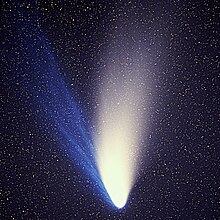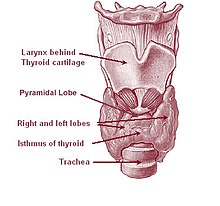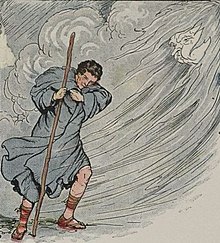Portal:Science
Science portal

Science is a systematic discipline that builds and organises knowledge in the form of testable hypotheses and predictions about the world. Modern science is typically divided into two or three major branches: the natural sciences (e.g., physics, chemistry, and biology), which study the physical world; and the behavioural sciences (e.g., economics, psychology, and sociology), which study individuals and societies. The formal sciences (e.g., logic, mathematics, and theoretical computer science), which study formal systems governed by axioms and rules, are sometimes described as being sciences as well; however, they are often regarded as a separate field because they rely on deductive reasoning instead of the scientific method or empirical evidence as their main methodology. Applied sciences are disciplines that use scientific knowledge for practical purposes, such as engineering and medicine. (Full article...)
Featured article -
Featured pictures
Vital articles
.JPG/220px-Lao_Mangkong_family_eats_together_(square).JPG)
Did you know...
- ... that characters from several different science fiction media appear as an Easter egg in the episode "Babylon's Ashes"?
- ... that Charles Leslie Richardson was ordered to "make science fashionable in the army"?
- ... that examples of artificial planets in science fiction include Riverworld, the Well World, and the Death Star?
- ... that Carl Freedman viewed science fiction as the most sound genre for academic study?
- ... that the Polish science fiction novel Extensa marked the growing recognition of its writer, Jacek Dukaj, in Poland?
- ... that one of the first Polish science fiction novels featured a trip to the South Pole by airship, a decade before a similar airship was built?
Get involved
| This portal needs to be updated. Please help update this portal to reflect recent events or newly available information. Relevant discussion may be found on the talk page. |

|

|
Science News
- 12 September 2024 – Polaris program
- American billionaire Jared Isaacman becomes the first person to perform a commercial spacewalk as part of the Polaris Dawn private spaceflight mission operated by SpaceX. (AP)
- 11 September 2024 – Spaceflight
- Following the launch of the Russian Soyuz MS-26 spacecraft from the Baikonur Cosmodrome in Kazakhstan, there were a record 19 people in outer space: the three astronauts on the MS-26 mission, three more on China's Tiangong space station, four people on the SpaceX Polaris Dawn mission, and nine more on board the International Space Station. (CollectSPACE)
- 24 July 2024 –
- Researchers from the Scottish Association for Marine Science report evidence of dark oxygen being produced from metals on the seafloor. It was previously assumed that almost all the free oxygen (O
2) on Earth was created through photosynthesis, which requires sunlight. (NPR) - 23 July 2024 –
- A study by the Oswaldo Cruz Foundation finds thirteen Brazilian sharpnose sharks off the coast of Brazil with high levels of cocaine in their muscles and livers. Experts believe that the cocaine is making its way into the waters via illegal labs where the drug is manufactured or through the excrement of drug users. (BBC News)
- 15 July 2024 – Mare Tranquillitatis pit
- In the journal Nature Astronomy, American and Italian scientists announce the discovery of a lunar cave, approximately 250 miles (400 km) from the landing site of Apollo 11. (AP) (Nature Astronomy)
- 10 July 2024 –
- Researchers from Northwestern University Feinberg School of Medicine and Harvard Medical School publish a claim for the cause and curative path for the autoimmune disease systemic lupus erythematosus in the journal Nature. (Newsmax) (Nature)





_(14562557107).jpg/220px-Bird_lore_(1913)_(14562557107).jpg)




.jpg/220px-Raccoon_in_Central_Park_(35264).jpg)






.jpg/120px-Shockwave_pattern_around_a_T-38C_observed_with_Background-Oriented_Schlieren_photography_(1).jpg)








.png/120px-Diamond_(side_view).png)




















.jpg/220px-The_Blue_Marble_(remastered).jpg)
















